7th Session of the Conference of the States Parties to the United Nations Convention against Corruption
6-10 November 2017, Vienna
, Secretary to the President,
Leader of Sri Lanka Delegation
Madam President,
On behalf of the Sri Lanka delegation, let me congratulate you on your appointment to preside over this7th Session of the Conference of the States Parties to the United Nations Convention against Corruption. I assure you my delegation’s fullest and committed support and cooperation.
The Conference takes place at a critical moment when it is increasingly acknowledged that efforts towards establishing an anti-corruption culture at all levels should be actively pursued. The implementation of Sustainable Development Goal No. 16 – Building inclusive, just and strong societies – demands no less.
Madam President,
Let menow take this opportunity to brief this Conference on the main areas of progress achieved in Sri Lanka in promoting good governance and rule of law, and specifically, in addressing concerns relating to bribery and corruption. Specific aspects will be addressed in our thematic statements
The 19th Amendment to the Constitution led to the establishment of independent national institutions to ensure promotion of good governance, accountability and public trust with oversight mandates, in particular the Commission to Investigate Allegations of Bribery or Corruption (CIABOC). The Government as at present is in the process of re-inforcing CIABOC by amendments to the law.
The amendment to the Constitution, for the first time, referred to an international treaty, namely the United Nations Convention against Corruption (UNCAC), making it imperative to rootout and prevent corruption in both public and private institutions.
In addition, pursuant to its popular mandate received at the elections held in 2015, the Government also established several anti-corruption bodies with a view to expediting investigations on major financial crimes and bringing to book alleged offenders. Wetook these measures as a matter of urgent priority, pursuant to its mandate to promote Good Governance, Rule of Law, Human Rights, Reconciliation and Economic Development.
Madam President,
In advancing these goals, theGovernment, through its Vision 2025 envisions an era of shared prosperity by 2025 with a three-year economic acceleration programme.
Both the Vision 2025 as well as the Action Plan of the CIABOCprovides a strong thrust to a national anti-corruption drive. Achieving Zero-Tolerance of Corruption is the ultimate goal of the Government of Sri Lanka, in respect of which a number of priorities identified through multi-stakeholder consultations.
It has been identified that effective coordination and cooperation among all the different entities remains the foremost priority. The National Action Plan that includeseffective pursuit of asset recovery, criminalization and capacity building isimportant in this regard.
Madam President,
In recent times, we have secured successful judicial pronouncements in a few important cases. Currently a number of cases of major financial crimes are being investigated. However, tracing of assets and ensuring the return of assets remains a significant challenge.Administrative delays and procedural hurdles often frustrate the active pursuit of justice.
It is important to strengthen vital tools, aimed to ensure expeditious outcomes, without prejudice to the principles of justice. The emphasis in this regard should be to encourage concluding mutual legal assistance frameworks, bilateral treaties, and memoranda of understanding as means of promoting international cooperation. The crime of corruption can not be effectively and meaningfully combated without assistance or support in reciprocity. We thank those who support us, but expect the global and regional organizations to address this hiatus in effective international cooperation.It will promote our actions to counter corruption.
Sri Lanka, as a State party to the Convention since 2004, has entered into mutual legal assistance agreements with several countries, and also provides legal assistance on an informal basis when bilateral requests for same are received. The Financial Intelligence Unit of the Central Bank of Sri Lanka also provides information to Egmont Group. The objective underlying this approach is to facilitate bringing to justice the perpetrators of corruption.
Sri Lanka has also identified gaps in policies and legal frameworks, through national consultations. The current thrust within the Government is to strengthen the processes and mechanisms for anti-corruption through developing a National Action Plan and legal amendments.
Madam President,
The Government of Sri Lanka strongly supports a holistic and integrated approach to combating corruption and calls for regional and global collaboration among governments, businesses, civil societies and other stakeholders to realize the objectives of UNCAC.
Madam President
Sri Lanka ispleased to note that the Global Forum on Asset Recovery to be held in December this year provides an appropriate opportunity to discuss these issues further. We endorse your sentiments orchestrated on eradication of corruption, safe havens of secrecy, the need to counter obstacles of asset recovery, transfer of information etc.
Finally, I wish our deliberations here would pave way for effective and efficient performance for which all of us are deeply committed.
I thank you, Mr. President.








